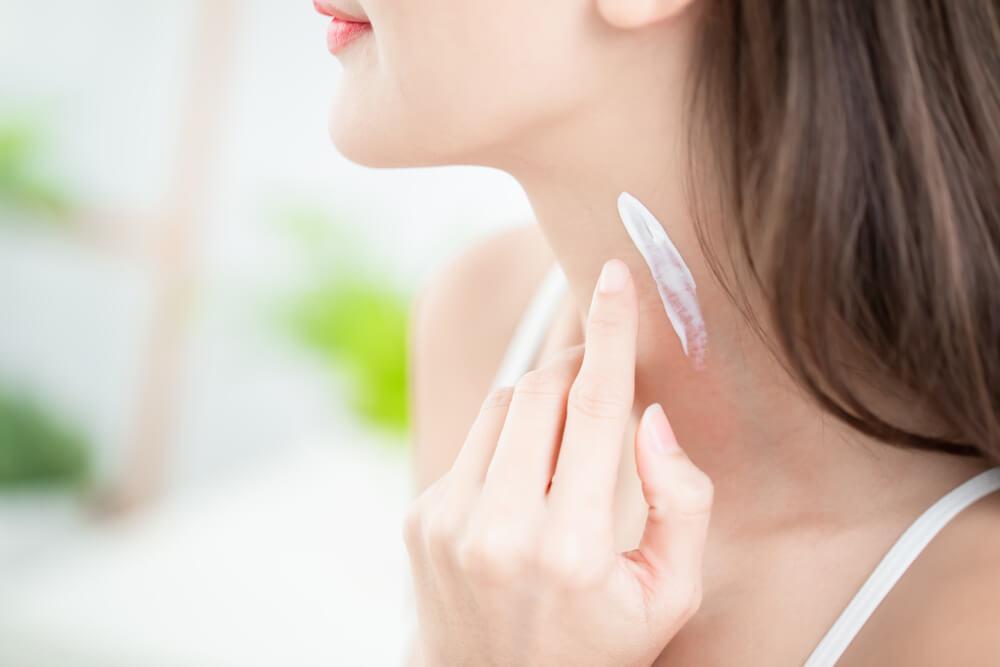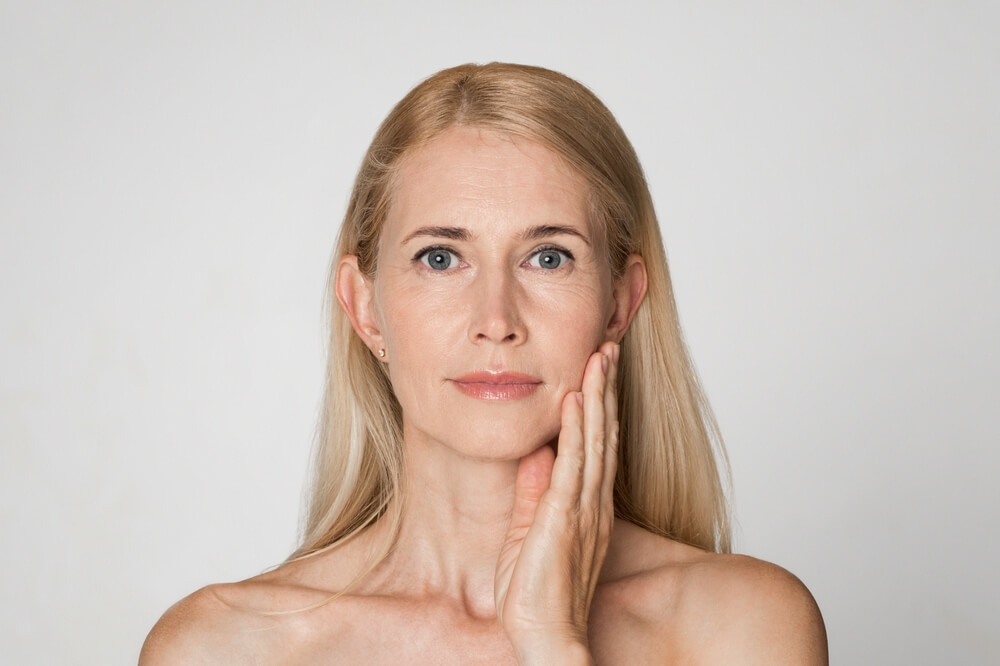Whether you are planning to go to the seaside, or a mountain is going to be your choice for the summer, or if you are simply planning to stay at home, resting in the city, you need to pay attention to your skin.
Most of us are probably all familiar with the bad effects of UV radiation coming from the sun, but are we taking it seriously and are we ready to consistently do something about it and protect ourselves?
How often did you get sunburnt when you were younger, or even now when you are all grown-up and know better? Be that as it may, many of us are not only usually confused about all the abbreviations and what they stand for, but also about which products to use, that will provide the best possible protection.
Hopefully, we may be able to provide some of the answers here.
Let’s Start from the Beginning…

SPF, UVB, UVA, oh my god, no wonder we are all sometimes confused… But there is a simple explanation to everything:
First things first – you might have heard about two different types of rays – UVB and UVA – but don’t really know the difference.
It is simple – UVB rays are the common cause of sunburn and they are supposed to be held back by the ozone layer. Since the ozone layer is being destroyed by the rising CO2 emissions, it is understandable why you need to pay more attention to protecting your skin from this type of radiation. UVB rays have a detrimental effect on the surface layer of skin. They can even cause different types of skin cancer.
As for UVA rays, they penetrate deeper layers of skin, causing it to age faster, creating wrinkles. In order to fully protect your skin from both types of rays, it is advisable to use the so-called broad-spectrum sunscreen.
The abbreviation SPF stands for sun protection factor and it determines the amount of protection you get when applying different products.
For example, applying a product on your skin that says SPF 15 means that it blocks about 93% of UV harmful UV rays, SPF 30 blocks about 97% and SPF 50 blocks about 98%. Of course, that doesn’t mean that everybody needs to use the SPF 50 products.
Whether you are going to use it or not depends on the type of skin you have. For instance, the ones that get red immediately, when exposed even the slightest amount of sun rays, SPF 50 sunscreen will be the only solution. But, for the ones blessed with a more resilient complexion, SPF 30 will be the optimal choice.
When Should I Apply SPF Products?
It is recommended that all SPF products should be applied 20 minutes before sun exposure. By doing this, you allow your skin to absorb the cream/lotion/spray and do its magic more efficiently.
You should repeat the process every two hours, regardless of the SPF mark on it. The higher factor doesn’t mean you can avoid reapplying the cream for a longer period of time, but, as it has been mentioned, it reflects the level of protection you get.
The frequency of application doesn’t depend on water resistance, either. However, if you are at two minds whether you should buy a water-resistant sunscreen or not, it is preferable that you choose the former. Being in the water does not protect your skin from burning, quite the opposite, it is easier to get sunburnt in the water than on the shore, so be careful.
Is the Application of SPF Sunscreen Enough?
Even though the SPF products are the best possible solution, they are not enough to save you from getting sunburnt.
Most of us forget one important body part which is, more often than not, the most exposed part of the body – the scalp. That is why it is essential for people to wear hats or in any way possible cover their heads while outside. Many studies have shown that the largest number of skin cancers start with the scalp.
Can SPF Products be Used on Children?

It is in fact not advisable to use SPF products on small children (you should usually wait until they have turned 1), since their skin is very delicate and could react differently to some ingredients.
Children should avoid sun exposure from 11 o’clock in the morning to 5 o’clock in the afternoon, when the sun rays are the most harmful. For older children there are many safe, clinically-tested products available in stores, so no worries there. Find the one that suits your child best, and don’t forget to put a hat on their head. Also, make sure to offer them water regularly, since children dehydrate more easily, especially when they are in the sun all day.
How Do I Know Which Factor to Choose?
Many scientists have confirmed that SPF 30 is the best way to go. They even add that there is not much difference between SPF 30 and, for example, SPF 50.
Can you imagine that!
The thing you should be careful about is the products that advertise to have an SPF of 70 or higher. In truth, they are not that much better, because SPF protects you from 98% of sun rays, while SPF 100 protects you from 99% of sun rays. You risk buying a product at a much higher price, but not getting your money’s worth.
Should Our Skin Tone Determine the Factor We Use?
The simple answer is – no.
Your skin tone does not and should not determine the factor that you use.
UVA and UVB rays can be harmful to any type of skin tone, be it darker or lighter. However, there are people who have more sensitive skin and feel the damaging sun rays more intensely. Their skin usually burns faster or they feel unwell after a longer period of exposure to the sun. For them, the best possible solution, apart from avoiding the sun in the middle of the day and wearing a hat, is to opt for an SPF 50 product.
But, for everybody else, as it has been said, SPF 30 is an optimal choice.
What is the Difference Between Chemical and Natural/Organic SPF Products?

As the name says, chemical SPF products contain chemical ingredients that are efficient in the process of protecting you from harmful sun rays. When properly applied and after the skin absorbs them, chemical SPF products absorb UV rays and convert them into heat, which is then let out from the body.
The chemical ingredients usually found in chemical SPF products are oxybenzone, avobenzone, octinoxate, homosalate, octisalate and octocrylene. These ingredients are beneficial because they absorb the sun rays, not letting them into your skin. Chemical SPF products are a better solution if you want to go swimming or you sweat a lot during the day, because they are usually water-resistant, and the skin absorbs them more quickly than the natural ones.
Natural/organic SPF products, also called physical products, once applied on the skin, reflect the sun rays, serving as a specific shield from the sun.
The main ingredients that provide this type of protection are titanium dioxide and zinc oxide. The advantages of natural SPF products are that they are a better solution for sensitive skin, and they can rarely cause skin irritation, since they are based on organic ingredients. They are also a better choice for children, who generally have more sensitive skin.
Although there are many benefits to natural SPF products, some would mind the feeling of “heaviness” these products can cause. In addition, it takes time for the skin to take them in, and, in some occasions, they never fully blend in, which can bother some users, who don’t want the product to be seen. But there are some new products that offer a different experience with matte versions which make your skin look smoother.
What Else Should I Be Careful About When Choosing the Right SPF Product?
Apart from the aforementioned notes, it is advisable to use a product that is devoid of any fragrance, preferably oil and paraben-free.
Should I Use an SPF Product Daily if I Have Sensitive or Acne-Prone Skin?
Of course. Not only will the right SPF cream, for example, protect you from the sun, but it will solve many skin problems you have.
If you have problems with acne, it will not worsen them, quite the opposite, the right product will make your skin look better and fresher. Just look for a product that is right for your skin that usually has the label that says it is meant for people with sensitive skin.
Do Other Face and Body Products Contain SPF?

Of course they do.
In this day and age, more and more emphasis is being put on the damaging influence of the sun. That is why cosmetic companies pay so much attention to adding sun-protecting ingredients to cosmetics you use in your daily routine.
For example, Resveratrol Zinfandel Radiance Cream SPF 30 is a moisturizing cream that contains SPF 30. It is meant to be used every day to help your skin fight off the UV rays that can cause skin aging.
Research has long ago proven the detrimental effects excessive sun exposure has on our skin, one of them being faster aging. This new formula effectively blocks the sun rays, slowing down the aging process. With its ingredients Vitamin A, Vitamin E, Green Tea, and Resveratrol, it provides your skin with all the nutrients it needs, keeping it healthy and tight, while protecting it from the sun. This product will certainly attract your attention, so be sure to try it!
Also, other daily products only contain SPF 15 or lower, which is not enough, especially if you live in an area with a lot of sun during the year. (Although, the way the climate change is going, soon every area will be like that.)
That is why this is a rare, yet very effective cream that will help you fend off the pesky UV rays.
Can the Usage of SPF Products Cause a Vitamin D Deficiency?
This is a valid question that concerns everybody who wants to protect their skin but not for the sake of causing some other damage to their organism.
But, there’s no need to worry.
People usually get their necessary daily dose of Vitamin D by being in the sun for about 10 minutes? And you can definitely spend about 10 minutes a day in the sun without protection. Just make sure not to spend too much time when the sun’s at its peak.
If you still feel uncertain, there are many supplements that contain Vitamin D, as there are foods known for having Vitamin D in them, such as fish, egg yolk, and mushrooms.
How Should I Use SPF Products if I Have Makeup On?
Modern problems require modern solutions.
There are many different SPF products today that you can apply in many different ways. Getting a spray or a powder SPF product will definitely solve these types of problems. So if you need to look your best and put on makeup that day, but also worry about the influence sun will have on your skin, this is the right way for you.
Is There an Expiration Date for SPF Products?
As with any product that contains chemical ingredients (those also include natural SPF products, which have some chemicals in them), there is an expiration date on the label that can be clearly seen.
However, most products can last up to three years, so you can use them for a longer period of time. Be careful though, if you have products that last three years, it usually means that you aren’t using enough if it.
How Much of the SPF Product Should I Put On?
You may find this surprising, but most people do not apply enough of the SPF product on their skin.
For example, if we are talking about a sunscreen, general advice is to apply at least two tablespoons of the cream and distribute it evenly on the body.
As for the spray, for example, you need to pay attention that even shine is seen on every part of the skin. This advice is for body application, of course you are going to use much less of the product on your face.






Leave A Comment